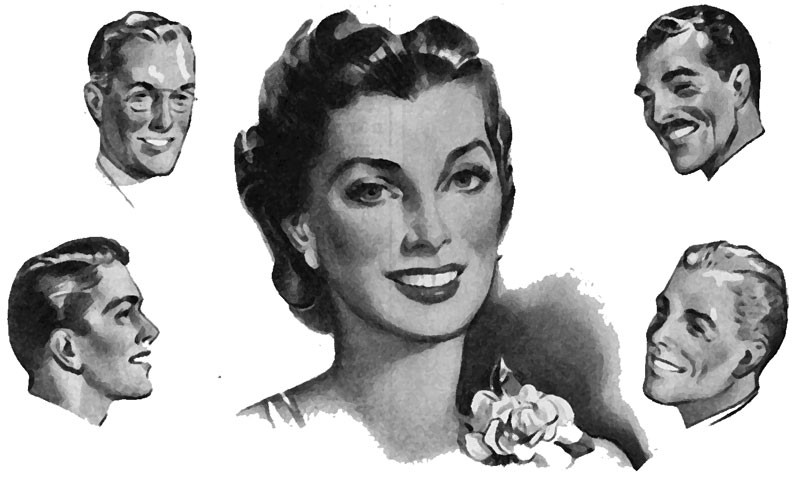
Feminism is for everybody, the mantra goes. This slogan, inspired by bell hooks’ book of the same name, is widely used to envision a feminist movement that is open to all people and that, in theory, recognizes the real diversity among feminists and among women more generally.
What could be wrong with that?
But the closer one looks at how this idea is actually being used, the more one starts to wonder: is feminism being stripped of its challenging and confrontational aspects in favour of a new, de-politicized feminist identity that is incapable of addressing ongoing inequalities?
At the University of Western Ontario, for instance, a recent essay in The F Word, a zine put out by the Women’s Issues Network (WIN) collective, celebrated feminism as being “for everybody,” including the author, a member of Stephen Harper’s Conservative Party. According to the author, Kathryn Mitrow, feminism is about “identity and fluidity … and gender equity.” So is feminism for everybody? Or more to the point, should it be for everybody? Or does this idea of a super-inclusive feminism simply lead to the disarming of the movement at the expense of actual, concrete gains for women?
Certainly, no one particular political ideology or strategy can lay an exclusive claim to the word feminist. Feminism is a diverse, heterogeneous movement in terms of membership, ideology, tactics and strategy. There is no single definition of what feminism is, nor is there a unified feminist movement. So, in one sense, yes, anyone advocating equal rights for women could claim to be a feminist. This seems to make it plausible to say, as the F Word article does, that feminism is “for the frat boy. It is for the cheerleader, the Master’s student in feminist theory, and, yes, it is for the card-carrying member of the Conservative Party of Canada.”
Yet this can’t be the whole story. After all, the last thing we should want to do is to redefine feminism in a way that drains it of those elements that have always been seen—rightly—to be threatening to the patriarchal power structures of society, not to mention challenging to men and women as individuals. We need feminism to be, in some sense, oppositional, even as we aspire to make it inclusive. Whenever feminism has been a force for change in society, it has also been perceived as profoundly threatening to those in power. It is through fighting oppression that the feminist movement grew and, in many ways, succeeded. The first and second waves of the feminist movement fundamentally changed society, largely because they threatened the status quo. For example, in the 1970s, during the second wave of the feminist movement, women challenged the institution of marriage and reclaimed their right to freedom over their bodies and sexuality. Many women left abusive or stifling marriages, some women came out as lesbian or bisexual, and some women learned how to give each other safe abortions and fought in the streets for the legalization of abortion for all women. Women defended their right not to have children and, at the same time, feminists who chose to have children revolutionized the medical system, challenging misogynist childbirth practices. Within the feminist movement, many women started to challenge the racism and class bigotry of some feminist organizations and activists, and began to look at the interaction between various forms of oppression.
The irony of the new feminism-for-everybody is that the book whose title it misappropriates actually offers a compelling critique of precisely this political project. Cultural theorist bell hooks dismisses the new, non-threatening type of feminism as “lifestyle feminism.” As she says in Feminism is For Everybody, lifestyle feminism “ushered in the notion that there could be as many versions of feminism as there are women. Suddenly the politics was removed from feminism and the presumption prevailed that no matter what a woman’s politics, be she conservative or liberal, she too could fit feminism into her existing lifestyle. Obviously this way of thinking has made feminism more acceptable because its underlying assumption is that women can be feminists without fundamentally challenging or changing themselves or the culture” (5-6).
If feminism is repackaged as nonpolitical, non-threatening, and fit for both a frat boy and a conservative politician, then the power of feminism to actually challenge sexism is essentially lost. What, then, is the point? What is a “feminist” who does not fight for women’s rights in any serious way (even while those rights are being seriously eroded), who speaks of “equity” while siding with those who are attacking the rights of immigrant women, women of colour, queer women, and women living in poverty? If feminism can be minimally defined as support for the equality of women and men in all aspects of public and private life, then any self-respecting “feminist” should know better.
Of course, Mitrow is not alone in her attempts to re-brand feminism. There has been a trend in the feminist movement towards both increased individualism and conservatism in recent years. The reasons for this trend are complex, but it emerged partly in response to the mainstream anti-feminist backlash, and found voice in influential feminist thinkers such as Naomi Wolfe. This rightward drift is also the result of a general weakening of social movements over the past thirty or so years, which has left young women with few feminist organizations to join, even while marketers have progressively colonized every sex-positive or vaguely feminist sentiment ever to reach the mainstream. It is little wonder that, left to our own devices and with plenty of reason to be cynical, many young feminists have turned to individualized expressions of their feminism such as zine-making, individual lifestyle choices, and consumerism.
In fact, many young feminists—often identified as part of a third-wave feminist movement—seem to focus most of their energy on re-envisioning feminism as sexy and sexual. The third-wave feminist fashion magazine Bust includes mainstay elements of fashion magazines in its pages, including beauty product reviews, how-to tips on getting “Audrey Hepburn” eyes and “Frida Kahlo” hair, and fashion spreads, often with very thin models in very expensive clothes. Of course, it shouldn’t matter to feminists why or if individual women wear make-up or care about fashion. Many feminists (myself included) indulge in both. It does become a problem, though, when these choices, and consumerism in general, are seen as feminist acts. Flipping through the pages of Bust gives one the sense that young feminists are only interested in being sexy, crafty and fashionable—certainly not angry about, or working to dismantle, sexism, racism, homophobia or class inequality.
In many ways women have lost ground in recent years. Childcare programs and the Office on the Status of Women have both been axed by the Conservative government. Women in most Canadian provinces have borne the brunt of provincial government cuts to funding for essential social services such as social assistance, health care, and education. The feminist/conservative author of the F-Word article claims that the stereotype of the “hairy-legged butch” hurts the feminist movement. But maybe what really hurts feminism is attempts by some feminists to make feminism non-threatening to men and to our society in general—even while the things we’ve fought for are being taken from us.
Instead of focusing so much energy on recasting feminism as non-threatening, we should reclaim our right to be angry about sexism and other forms of oppression. We should look to the confrontational style of previous feminist movements and actions for inspiration. We should once again make the personal political and look at the ways in which our individual experiences with sexism are part of a larger system of domination. In other words, as women continue to lose rights won for us by previous generations of feminists, young feminists need to once again make feminism dangerous. We need to stop worrying about being nice and pretty and start to challenge not only the misogyny and sexism deeply ingrained in our society but also the racism and class bigotry. We need to reframe feminism as a movement that is deeply political and that courageously challenges all forms of oppression.
In this context, feminists must defend the rights of all women, especially immigrant women, First Nations women, queer women, and poor women. That’s what inclusiveness means in feminism: a movement that challenges the oppression of all women.
Maybe it’s time to put down the eyeliner and pick up the placard.
Becky Ellis is a feminist, a mama, a part-time student, an activist, and a knitter who resides in London, Ontario.






